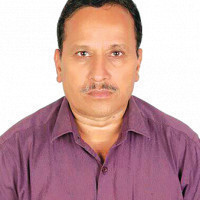- Friday, 20 February 2026
Follow Manu's Rule
In the Medieval Period, religious values used to be the guiding principles of society, and priests used to be role models. With the passage of time, contribution of visionary and revolutionary philosophers and sacrifices of people, the old systems were replaced by the new ones. Politics became an engine of change, with politicians ruling the roost. Like the priests in the past, statesmen have become role models of the present-day society. As our forefathers had expected honesty, compassion, integrity, leadership quality, and confidence from the priests, so we expect them from our leaders now.
But, sad to say, the majority of leaders appear to be devoid of honesty, integrity and confidence. It seems that they are short-sighted, and do not have long-term vision and commitments. They make tall promises during elections but forget all of their pledges in no time. Among the aforementioned virtues of a leader, their only two qualities – confidence and courage - are discussed here.
Confidence in a leader is directly related to voters. If a leader prepares to fight social anomalies such as corruption, slackness in development works, s/he leads the mass and wins the hearts and minds of voters. In this case, the leader does not bother about losing the election. Likewise, if a leader comes up with visionary plans and programmes, and sets destination of society, it earn him/her respect and dignity.
But, the majority of leaders are now neither leading the society nor are they offering their vision for the future. Instead, they seem to be forming gangs to contest elections, create confusion among voters to remain in power. Judging self is another capacity of a person which helps him/her to accept the fact. It has to do with age, health condition, and power of creative vision, among others. Considering these things, the state has a provision of reservation of the front seats of public vehicles for elderly citizens.
Renowned sage Manu has divided the whole life of a person into four parts -- Brahmacharya (till 25), Grihasthasram (25-48), Vaanaprastha or retirement life (48-72), and Sannyas (72- onward). In the first stage of life, we spend our time in study and learn skills necessary to meet our requirements. In the second stage, we get married and bear the responsibility of the house, and in the third stage, we become more knowledgeable and serve the community to contribute to the nation. And, the fourth stage is the stage of renunciation of routinely life, Sanyas.
The personal conduct in the fourth stage of life is very important. If one gets married at this stage, it becomes talk of the town. So, civil servants, farmers, and people from other walks of life take rest after 70 years of age. Even business people and industrialists are seen taking retirement. But, our politicians are not. The political leaders are not following Manu’s guidelines. It is not that they are being more creative and more responsible; rather, the reality is the opposite. They are not yielding any new thing to people, but they just want to cling to power simply for their own benefit.
Therefore, if the septuagenarian and octogenarian leaders happen to travel on public vehicles, they should not be given the senior citizens’ seats because those seats are allocated only for the common elderly people.










-original-thumb.jpg)

